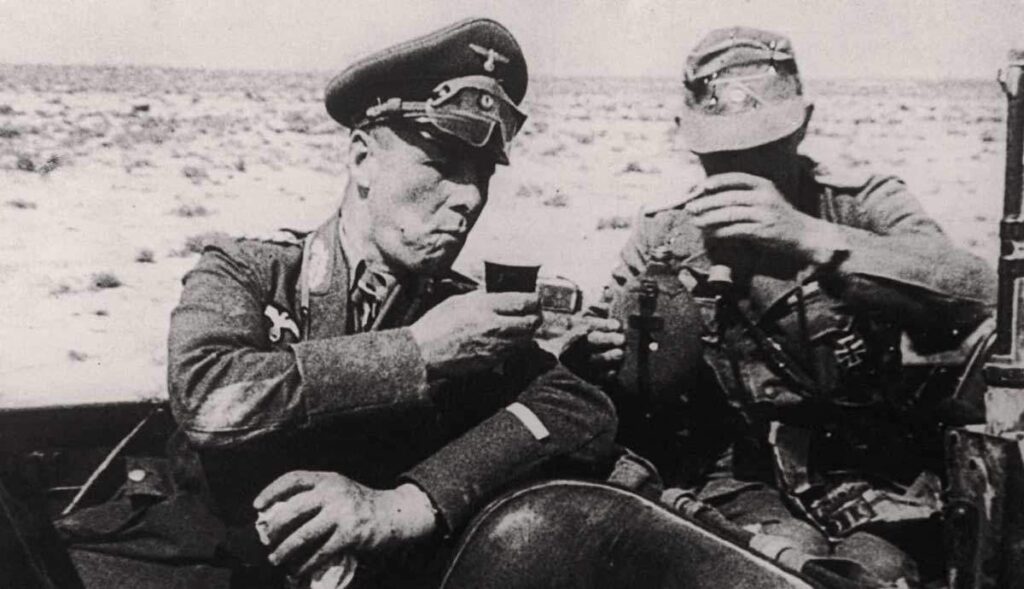Erwin Rommel, known as the Desert Fox, was a highly regarded German military strategist during World War II. He implemented innovative and daring strategies in the North African campaign, achieving remarkable victories against the Allied forces. Rommel revolutionized tank warfare by employing “blitzkrieg” tactics, utilizing the speed and versatility of German tanks. He also made effective use of aerial reconnaissance and deception tactics to gather information and mislead the enemy. Rommel adapted to the harsh desert environment, developing specialized vehicles and implementing water conservation measures. His hands-on leadership and respectful treatment of prisoners of war boosted morale and fostered professionalism among his troops. Rommel’s contributions to military strategy are still studied and celebrated today.
The Desert Fox: Erwin Rommel’s Innovative Strategies in North Africa
Introduction
Erwin Rommel, famously known as the Desert Fox, was one of Germany’s most esteemed military strategists during World War II. He gained his reputation by implementing innovative and daring techniques in the North African campaign. Rommel’s tactical brilliance, combined with his ability to adapt to the harsh desert environment, allowed him to achieve remarkable victories against the Allied forces in a theater of war far from his homeland.
Tank Warfare in the Desert
Rommel revolutionized tank warfare in the North African campaign by employing what became known as “blitzkrieg” tactics. He utilized the speed and versatility of German tanks, particularly the Panzer divisions, to outflank and overwhelm the enemy. Rommel understood the importance of mobility in the desert, where the wide open spaces allowed for rapid maneuvering.
Furthermore, Rommel recognized the significance of aerial reconnaissance to gather crucial information about the enemy’s positions and movements. He made effective use of the Luftwaffe, Germany’s air force, to provide him with up-to-date intelligence, which allowed him to plan his tactics accordingly.
The Deception Tactics
Rommel’s use of deception tactics was another key aspect of his innovative strategies. He understood the value of surprise and misdirection and frequently employed tactics to confuse and mislead the enemy. One example of this was his implementation of dummy tanks, which were inflatable replicas that created the illusion of a larger tank presence.
Rommel also utilized a technique known as “Rommel’s asparagus.” This involved scattering iron rods across the desert to imitate anti-tank obstacles, giving the impression of heavily fortified positions. By doing so, he diverted the enemy’s attention away from his actual defensive positions, creating opportunities for a surprise attack.
Adapting to the Environment
The North African desert presented numerous challenges that required unique solutions. Rommel recognized the importance of adapting to the environment to gain a strategic advantage over his opponents. He developed specialized vehicles, such as half-tracks and reconnaissance cars, that were better suited for desert warfare.
Rommel also displayed a deep understanding of the scarcity of water in the desert and implemented strict water conservation measures for his troops. By carefully managing their limited water supplies, he ensured that his forces could continue their operations even in the harshest conditions.
Leadership and Morale
Rommel’s leadership capabilities were instrumental in his success. He led from the front, often taking personal risks to assess the situation firsthand and make quick decisions. This hands-on approach to leadership boosted the morale of his troops, as they saw their commander leading by example.
Rommel also had a reputation for treating prisoners of war with respect and dignity, which further enhanced his standing among both his soldiers and those who fought against him. This humane treatment fostered a culture of respect and professionalism among his troops, resulting in a more cohesive fighting force.
Conclusion
Erwin Rommel’s innovative strategies in the North African campaign demonstrated his tactical brilliance and adaptability as a military leader. His revolutionary approach to tank warfare, implementation of deception tactics, ability to adapt to the harsh desert environment, and exceptional leadership skills played a significant role in achieving remarkable victories against the Allied forces. The Desert Fox’s contributions to military strategy continue to be studied and celebrated to this day.
